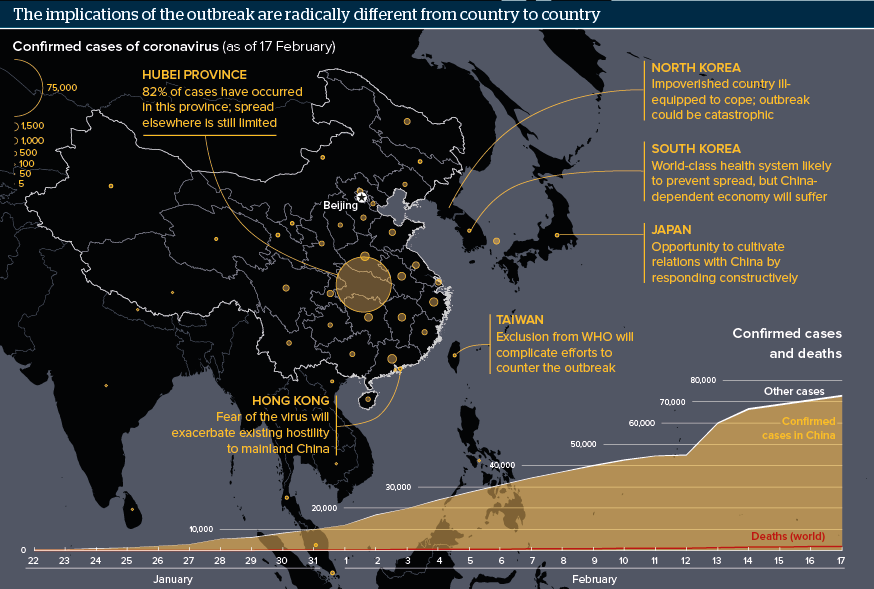Coronavirus makes for precarious politics in East Asia
The effects of the Wuhan coronavirus outbreak will be felt much further than the disease's actual spread
Source: Johns Hopkins University Center for Systems Science and Engineering
Outlook
The Wuhan coronavirus outbreak is the most serious crisis President Xi Jinping's administration has yet faced. This makes for unpredictable politics. The United States might try to take advantage of China’s preoccupation with the outbreak to further its regional agenda, for example with ‘freedom of navigation’ patrols in the South China Sea.
Beijing will want to avoid any entanglements outside its borders while it deals with the outbreak at home, but may feel compelled to prove that its current weakness cannot be exploited. There is a risk that Chinese leaders under stress will respond excessively to perceived provocations.
Impacts
- If the disruption in China continues, the economic damage will accelerate as financially fragile firms and households begin going under.
- The virus looks likely to damage the global economy via its effect on China rather than its spread overseas.
- North Korea’s draconian travel restrictions to prevent an outbreak will come at a heavy economic cost and weaken regime legitimacy.
See also
- COVID-19 may hurt Singapore most in South-east Asia - Mar 3, 2020
- The Middle East may see Iran-linked coronavirus spread - Feb 24, 2020
- Coronavirus will alter Japan’s relations with China - Feb 13, 2020
- North Korea is vulnerable to coronavirus outbreak - Feb 12, 2020
- Coronavirus may cut global growth to 2% in early 2020 - Feb 10, 2020
- Virus will stymie Seoul's economic recovery hopes - Feb 5, 2020
- More graphic analysis
